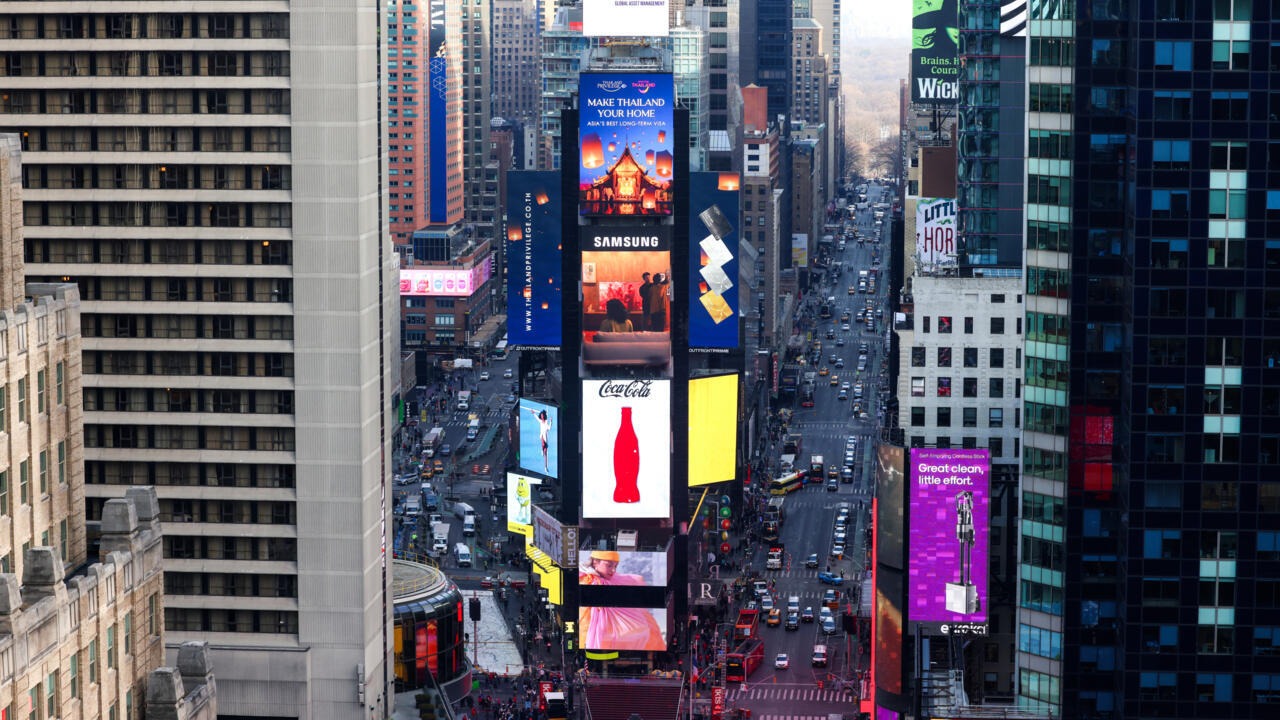

Within a matter of weeks, the prospects for U.S. tourism have darkened due to several policy choices made by President Donald Trump. These decisions have upset certain international travelers and raised concerns about potential increases in costs along with a more robust dollar.
The number of foreign travelers visiting the United States is anticipated to decrease by 5.1% in 2025 relative to the previous year, according to a report released by Tourism Economics at the end of last month; this contrasts with an earlier forecast for an 8.8% rise.
It is anticipated that their spending will decrease by 10.9%.
Following the release of the report, "the circumstances have worsened even more," according to Adam Sacks, the president of Tourism Economics, who attributed this decline to "the negative sentiment toward the U.S." The forecast suggests that the final result may end up being bleaker still.
Over the past few weeks, the Trump administration has imposed tariffs on Canada, Mexico, and China—and has also threatened to levy them on the European Union. Additionally, a comprehensive proposal to restrict immigration has escalated tensions further.
Government agencies such as the U.S. Agency for International Development have faced significant cuts, leading to layoffs of numerous public servants ranging from legal professionals to park rangers. Additionally, Trump has proposed contentious strategies regarding the conflicts in Ukraine and Gaza.
"Trump Administration policies and rhetoric, which have caused division, may deter people from traveling to the United States," according to Tourism Economics, a branch of Oxford Economics.
"Certain groups might experience an urge to refrain from organizing events within the U.S. or dispatching staff members to the country, consequently reducing professional trips," the statement further noted.
According to the World Tourism Forum Institute, a combination of strict immigration measures, a robust US dollar, and worldwide geopolitical strains could substantially impact international visitors, potentially altering the country’s tourism industry for an extended period.
In a survey conducted by YouGov among residents from 16 European and Asian countries in December, 35% of participants indicated that they would be less inclined to visit the United States during Trump’s tenure, whereas 22% stated they would be more likely to do so.
For tourists from France, Uzbekistan, and Argentina questioned by AFP In New York's Times Square, Trump's position hasn’t disrupted their plans.
Despite being 33 years old, Marianela Lopez and Ailen Hadjikovakis chose to use their European passports instead of their Argentine ones to bypass any potential issues at the border.
"I was a bit apprehensive about the circumstances, yet we decided not to alter our plans," stated Lopez.
The Lagarde family, originating from France, stated that it had not affected their plans at all.
"The Americans chose this president. That’s how democracy works. If they aren’t satisfied, they can switch it up in four years," stated Laurent Lagardere, aged 54.
"He remains himself" and steering clear of the United States "won't make a difference," Lagardere stated.
Some 77.7 million foreign tourists were expected in 2024, up 17% year-on-year, according to the National Travel and Tourism Office, which does not yet have final figures for last year.
In 2024, tourists from Western Europe—who accounted for 37% of all visitors—alongside Canadians and Mexicans, are the most prone to opt for alternative locations.
In early February, the U.S. Travel Association cautioned that new customs tariffs could discourage Canadian visitors, who represent the biggest group of international travelers to the United States, totaling 20.4 million people in 2024.
Statistics Canada reports that the number of Canadians coming back from the U.S. dropped by 23% in February compared to the previous year, marking the second month in a row with a decrease.
In New York, where 12.9 million international visitors arrived in 2024, the impact is evident as Canadians are cancelling their travel reservations and hotel inquiries along with Broadway show searches have decreased, according to NYC Tourism President Julie Coker. AFP .
In February, she revised her prediction for the year downward, noting that up until then, only Canadians were declining to embrace Trump's America.
"She mentioned that they aren’t currently observing any developments from the U.K. or Europe" as it’s still too soon, "but they are certainly monitoring that situation very attentively," she added.
However, both British and German authorities have recently cautioned their citizens to exercise additional caution regarding their travel documents, highlighting the potential danger of arrest.
United Airlines has observed a significant decrease in travel from Canada to the United States along with a reduction in the need for internal trips, similar to what many of its rivals have experienced.
Based on estimates from Tourism Economics, the tourism industry might face a loss of approximately $64 billion in revenues in 2025 as a result of reduced international and domestic travel activities.
Americans currently seem paralyzed due to the economic forecast, and concepts such as recession and inflation are also intimidating visitors, alongside the possibility of a more robust US dollar, according to experts.
"As a result, this will increase costs for incoming visitors to the U.S., which could reduce both the number of tourists and their average duration of stay," according to Tourism Economics.
Experts are equally concerned about how stricter immigration policies could impact significant sporting events held in the U.S., including the Ryder Cup (2025), the FIFA World Cup (2026), and the 2026 Summer Olympics in Los Angeles.

Our website uses cookies to improve your experience. Learn more